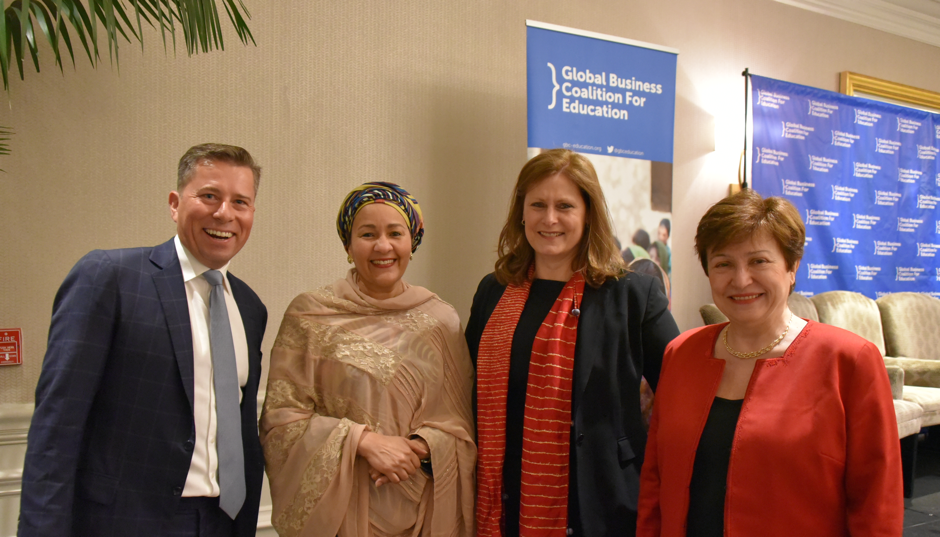- Posted on : April 19, 2018
- Posted by : Tom Fletcher
The debate over military strikes in Syria is another reminder that there is no such thing as certainty in foreign policy. Anyone genuinely looking for irrefutable evidence that a course of action is correct will be disappointed. There are negative consequences to action, and to inaction. But one thing we have learnt again and again is that if you intervene in Middle East, it bites you back. If you fail to intervene, it bites you back. Swing between the two, it bites you back.
I believe it was right that we were part of military action. To show there is a penalty for targeting civilians with chemical weapons. And to push back against PutinWorld, where the international rules, built by our grandparents with such blood and wisdom, no longer matter. Our inability over several years to back up rhetoric has had a cost for the credibility of Western statecraft. But a much greater cost for the Syrian people. Assad will not voluntarily stop targeting Syrians with chemical weapons – industrial violence is his factory setting. And Russia has no interest in restraining him. Syria is the first conflict of this duration in internet age: we can never say we did not know. We have tolerated the intolerable, and this toxic war scars us all more deeply than we yet realise.
But that is not to say that we should celebrate having to take military action, or indulge in the silverback chest thumping and game show rhetoric of the current US President. War and diplomacy are not light entertainment. Military strikes can't be drive by diplomacy – they must be part of coherent wider strategy, including courageous politics and unrelenting compassion.
So wherever you stand on military strikes, surely we can agree that Syria's children are not at fault. And what they tell us, eloquently and compellingly, is that they want to go back to school. Thanks to neighboring countries, UN agencies and the handful of donors who have prioritized education, progress has been made. More than half of Syrian refugees are getting an education, 200,000 more than a year ago. But this still leaves over 2m Syrian kids out of school, despite promises made at successive donor conferences. They are part of a potential lost generation of 75m kids not in school globally, a population larger than Britain's.
There is no number that should shame us more as we pursue rapid economic growth, aim to settle Mars or allow ourselves to be distracted by the latest Trump tweet. The current system for coordinating our response cannot cope. So we need a radical, fresh approach that uses new technology to channel our collective energy into delivering genuine opportunity to those who crave it. An approach driven by citizens as much as governments.
So what if engineering companies offered to provide the school buildings, working with struggling governments? What if education providers agreed to supply the schoolbooks? Could social media giants help set up high speed internet connectivity, allowing pupils to access digital content on phones and tablets? Could teachers mobilize to support teachers on the frontlines, on the ground and online? Could universities identify positions for displaced students and faculty? Could transport companies come get pupils and teachers to schools? Could the smartest innovators lend their time to crack the problems that governments can't? Could logistics companies and couriers ensure that key materials and cash transfers reach pupils fast? Could consultancy and legal companies offer pro bono time to help coordinate the overall effort, and to monitor and evaluate the impact?
We believe that the Rapid Education Action (REACT) platform we launched at a GBC-Ed event in Washington this week finally makes possible a response to the education crisis that is genuinely collaborative, innovative and effective. It will match make partnerships between business, individuals, NGOs, the UN and governments. Businesses are desperate for a more coherent, results-driven effort, and over 50 companies have already signed up. Organizations working with refugees in the field are sending in their specific requests for help. And anyone and everyone can help.
As a species we need the next generation to be equipped with the education they need to find the ingenuity to take us through the challenges ahead, and to build a kinder, braver and more curious global society. Among those 75m out of school are the future Einsteins, Curies, Mandelas and Gates, who will make the scientific, medical, political and technological breakthroughs that change our lives.
So often we hear from people that they don’t know what they can do to help. Now we do. And that is surely an intervention that we can all agree to get behind.
Photo description: Sarah Brown (Theirworld), Amina Mohamed (UN Deputy Secretary General) and Kristalina Georgieva (World Bank CEO) at GBC-Ed breakfast/REACT launch, Washington.
To hear more from Washington DC during the World Bank Spring Meetings, please listen to the Better Angels podcast with Sarah Brown on innovation and education.
0 Comments

